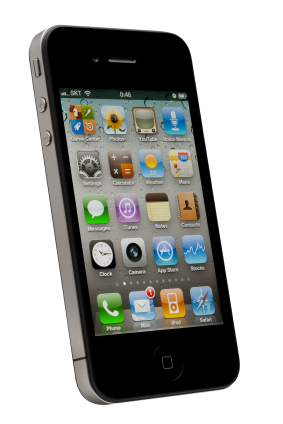6 Simple Ways to Manage Your Sales Manager
This is one of the keys to success. First discussed in BSJ about a year ago, I still believe in it, and you may as well if you read it. Never miss the opportunity to master the most important relationship you will have in your office.
I am a believer in this topic. Managing your manager is the way to success. I was a sales rep, and a sales manager, and know thtat
There should be no negative implications for a topic like this. We attempt to manage time, territories, expenses, production, and performance outcomes as a natural course in our jobs. I would hope that understanding how to “manage” your sales manager would be just as important.
“Managing” your sales manager involves important issues such as training, performance evaluations, potential merit increases, territory allocations, participation in sales calls, and the allocation of valuable resources such as prospect distribution, house accounts, and major accounts.
This is not anything nefarious, yet is respectfully making sure that you get the attention you need, and in some cases the space you need to do your job to the fullest. It also would be designed to give you resources you need in a competitive atmosphere to be the premier sales professional in your unit.
As a Black sales professional, you are quite visible. You need to be calculated in your performance, and how you frame that performance. Your manager should be active with you as well as an observer in your performance and work activities.
Relationships Count
The most important relationship you have at your job is the one you have with your manager. Your ability to ask questions, seek assistance, and suggest improvements should be natural. Likewise, your ability to get feedback, accept criticism, and be generally evaluated should be a given.
This relationship is a give and take. He or she is still the boss, and you have expectations of each other. You need to work at this relationship if you are not the premier performer. The premier performer has his/her results to support the relationship. Until you get to that status, you need the manager a little more.
‘Fair Game’ Tactics
Here are some ways to effectively manage your sales manager:
Communicate Upward – Keep your sales manager knowledgeable of your activities, and the status of major clients and prospects. Your managers should always be kept abreast. Sales managers communicate upward to their managers regarding major prospects and clients, sales projections, and goal attainment. The last things they want are surprises. By communicating these things frequently, it will keep them from making projections and claims that cannot be met.
Request Assistance and Sales Manager Presence – Request your sales manager’s help for profile and difficult prospect/clients. Remember, you will be in the boat by yourself to get the attention or negative attention depending on the results. Sharing the attention when you win is better than ending up with the sole negative attention “spotlight” if you blow it. You can more easily manage your sales manager if you make him or her look good. Have the sales manager attend calls that you need help on, but also calls that put you in a good light. You can choose calls that display the strength of your relationships, showcase your strong technical abilities, and calls that reveal your technical sales ability.
Be The Expert on You – Your manager can have as many as 12 direct reports, and the responsibility for getting results from them, and a particular territory. He cannot possibly know you, your accomplishments, and your strengths, the way you want. It is easier for the focus to be on your weaknesses. You must be the expert on you! Know the following:
- Your goals vs. current production
- Your upcoming prospects and their status
- Know your ratios (prospected to quoted, quoted to sold, etc See Black Sales Journal 2/28/2011 – How Many Prospects Do I Really Need? for some specifics)
- Know as best you can your status versus the other sales professionals
Know Your Sales Manager – Knowing as much as you can know about your manager without being invasive is good business. It will help you understand the motivations and better be able to answer questions and complete tasks. Know where your manager went to school and the composition of his/her family. Know his/her previous jobs, and what motivations are present. A sales manager who was formerly a financial person may have a focus on the numbers and metrics, and you should know this. The more you know, the better off you are. Know the background and feel comfortable discussing it with him/her. You will notice that the manager will be flattered. Information from Linked-In, or your company’s website can help you here. You may even use Google for this purpose.
Volunteer with a Purpose – Every manager needs some help, and you should be prepared to give some assistance and learn in the process when it benefits you. I certainly am not suggesting that you be ‘oily’ and kiss “you know what”, yet when you can add something you should step-up. Those that don’t step-up will probably get the items they would not have chosen.
Always be Prepared – Repeat after me “I will never go into a meeting with my sales manager and be unprepared!” This is important. When you go in to any meeting with this most important relationship you have at that company, you should go in with a solid agenda. No rambling and no scrambling but a meeting with a purpose that you requested and are in control of. Have your questions written down, and stick to your appointment time. Your manager will realize your efficiency and effectiveness.
Always Perform
Here is where you start to make the distinction between you and your counterparts. To be most effective at this, you need to consistently produce sales results. It is a given that you need to be in good standing, yet it always helps to be exceeding goals and be a sales leader.
If you do this, you will be “shining” the light on yourself. This type of self-promotion is totally ‘legal’. Make sure your managers sees what is necessary and knows your value. This is something that you can do without seeming like a “weasel”.
‘Manage” this relationship wisely. It can make a difference in your compensation and your future.
We appreciate your comments.
 June 14, 2012
|
Posted by Admin9!
June 14, 2012
|
Posted by Admin9!

 Categories:
Categories:  Tags:
Tags: 
Your Comments